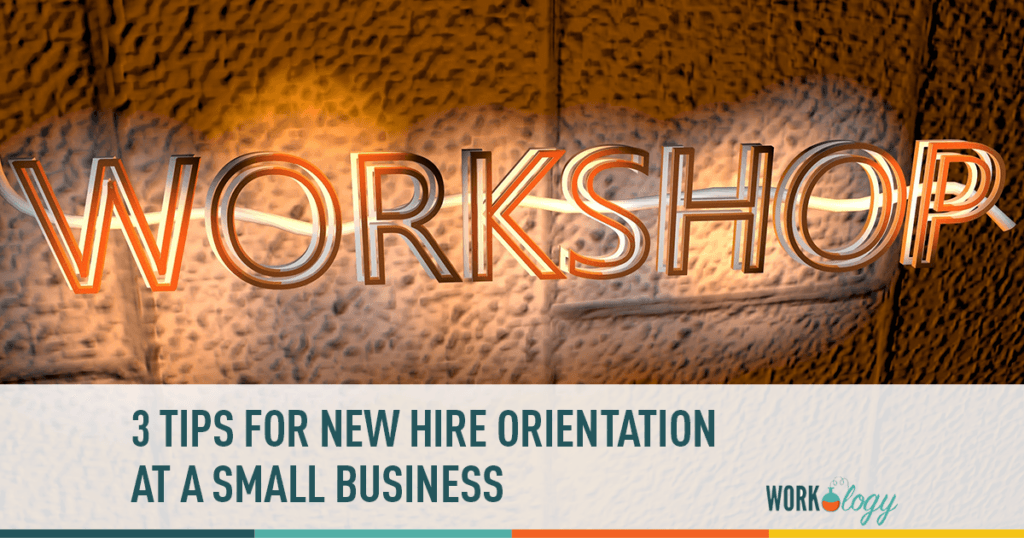When I facilitated new employee orientation at companies with over 500 employees, I easily had enough new hires for several orientations per month. However, this approach to orientation is not realistic for a small business where there may only be a few hires per year. As a result, new hires at small businesses often get no more orientation than sitting down at a desk to fill out paperwork and read the employee handbook.
3 Tips for New Hire Orientation at a Small Business
Orientation is not just a way to teach new hires about policies and rules. It helps them understand the company’s vision and culture and gives them an opportunity to ask questions—these things are important regardless of the size of your business. Just because you may only have a handful of new hires per year, it does not mean you should skip orientation. Here are a few tips for how you can hold new employee orientation at your small business.
Create an Orientation for One
At a small business, orientation need not include a day spent in a room watching a presenter in front of a lengthy PowerPoint. Orientation can simply be your process for getting a new hire acclimated to your company. Instead of thinking of orientation as a presentation, think of it as the schedule for the new hire’s first day.
This should of course include the standard new hire paperwork and review of the employee handbook, but also consider scheduling brief meetings with managers and top employees. Your new hire will learn about your company by speaking one-on-one with the people that make your company. This is a good alternative for a business with only a couple hires per year. When paired with a formal training process, this non-presentation approach to orientation will create a good foundation for new hires.
Establish a Formal Training Process
One of the worst ways to train a new hire, regardless of the size of your business, is to throw them into the middle of a busy shift. It’s a little like teaching a kid to swim by throwing them in the deep end and telling them to keep their head above water. Without instruction, it is likely that the kid and your new hire will sink.
Even at a small business, you should have some kind of formal training plan for new hires. This includes designating the people who will train the new hire, creating a checklist of the things the new hire needs to learn and measurable goals for the first few months of employment. The new hire’s manager should check in with them regularly to assess progress and come up with a plan for areas that still need improvement.
Design a Re-Orientation
At my last HR job, I had a manager ask me if she could sit in on one of my orientations. She had been with the company for ten years, but she said she wanted a refresher on company policy and a reminder of the company’s vision. I thought this was a great idea, and it got me to wondering why companies don’t regularly hold re-orientation for existing employees. This is not only a good way to remind employees of policies and company philosophies, but it also informs them of things that may have changed since they first started years ago.
Use the re-orientation to review policies that employees have become lax about, update everyone on how the company is doing, acknowledge people for recent accomplishments and recognize new hires. Also, bring in lunch or provide snacks, and make it fun.
Regardless of how you choose to approach orientation at your small business, it is important to have some kind of process in order to help your new hires feel welcome. It builds a strong foundation and encourages an environment of open communication about company policies and culture.








One Comment
Hi Stephanie –
Thanks for sharing – a planned orientation is so important for small businesses to think about. I’ve worked for companies where someone just shows me how to access a few things on the server and give me an employee handbook … actually learning about the company had to come over months instead of over the first few days or weeks. I think you’re right that even planning out a schedule for the new hire’s first day is an easy way to make sure they are being properly trained and introduced to the company.
Thanks,
Natalie
Comments are closed.